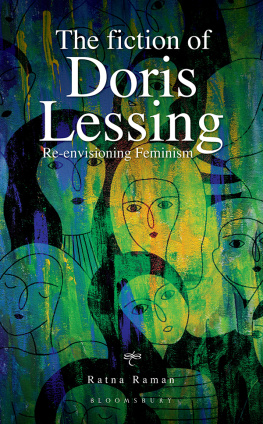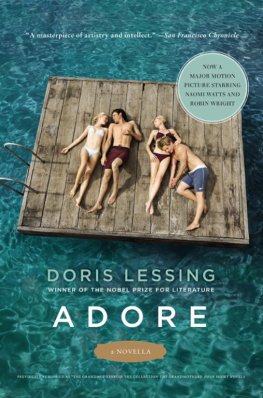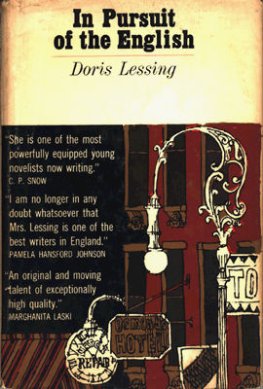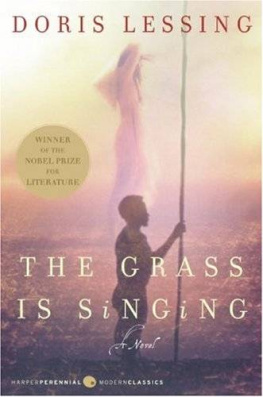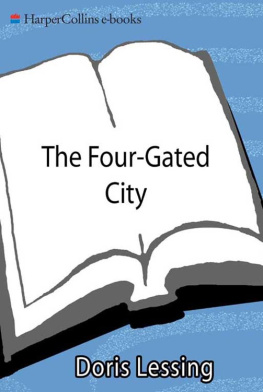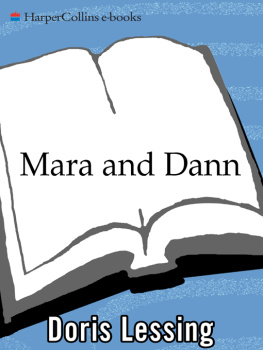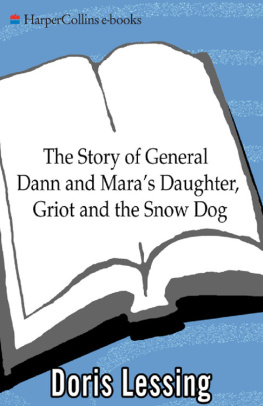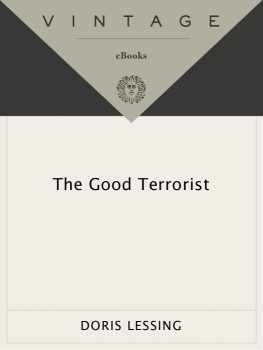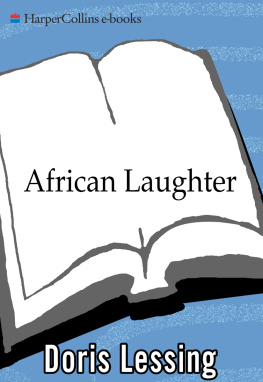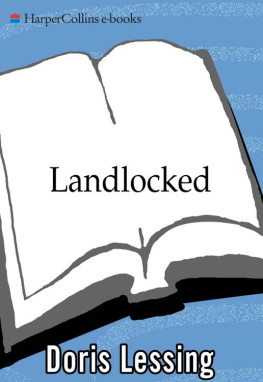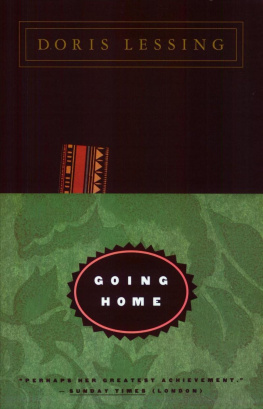Ratna Raman - The Fiction of Doris Lessing Re-Envisioning Feminism.
Here you can read online Ratna Raman - The Fiction of Doris Lessing Re-Envisioning Feminism. full text of the book (entire story) in english for free. Download pdf and epub, get meaning, cover and reviews about this ebook. City: London, UNITED KINGDOM, year: 2021, publisher: Bloomsbury Publishing India Pvt. Ltd., genre: Home and family. Description of the work, (preface) as well as reviews are available. Best literature library LitArk.com created for fans of good reading and offers a wide selection of genres:
Romance novel
Science fiction
Adventure
Detective
Science
History
Home and family
Prose
Art
Politics
Computer
Non-fiction
Religion
Business
Children
Humor
Choose a favorite category and find really read worthwhile books. Enjoy immersion in the world of imagination, feel the emotions of the characters or learn something new for yourself, make an fascinating discovery.
- Book:The Fiction of Doris Lessing Re-Envisioning Feminism.
- Author:
- Publisher:Bloomsbury Publishing India Pvt. Ltd.
- Genre:
- Year:2021
- City:London, UNITED KINGDOM
- Rating:3 / 5
- Favourites:Add to favourites
- Your mark:
- 60
- 1
- 2
- 3
- 4
- 5
The Fiction of Doris Lessing Re-Envisioning Feminism.: summary, description and annotation
We offer to read an annotation, description, summary or preface (depends on what the author of the book "The Fiction of Doris Lessing Re-Envisioning Feminism." wrote himself). If you haven't found the necessary information about the book — write in the comments, we will try to find it.
Ratna Raman: author's other books
Who wrote The Fiction of Doris Lessing Re-Envisioning Feminism.? Find out the surname, the name of the author of the book and a list of all author's works by series.
The Fiction of Doris Lessing Re-Envisioning Feminism. — read online for free the complete book (whole text) full work
Below is the text of the book, divided by pages. System saving the place of the last page read, allows you to conveniently read the book "The Fiction of Doris Lessing Re-Envisioning Feminism." online for free, without having to search again every time where you left off. Put a bookmark, and you can go to the page where you finished reading at any time.
Font size:
Interval:
Bookmark:

The Fiction of Doris Lessing
The Fiction of Doris
Lessing
Re-envisioning Feminism
Ratna Raman

BLOOMSBURY INDIA
Bloomsbury Publishing India Pvt. Ltd
Second Floor, LSC Building No. 4, DDA Complex, Pocket C 6 & 7,
Vasant Kunj, New Delhi, 110070
BLOOMSBURY, BLOOMSBURY INDIA and the Diana logo
are trademarks of Bloomsbury Publishing Plc
First published in India 2021
This edition published 2021
Copyright Ratna Raman, 2021
Ratna Raman has asserted her right under the Indian Copyright Act to be identified as the Author of this work
All rights reserved. No part of this publication may be reproduced or transmitted in any form or by any means, electronic or mechanical, including photocopying, recording or any information storage or retrieval system, without the prior permission in writing from the publishers
This book is solely the responsibility of the author and the publisher has had no role in the creation of the content and does not have responsibility for anything defamatory or libellous or objectionable
Bloomsbury Publishing Plc does not have any control over, or responsibility for, any third-party websites referred to or in this book. All internet addresses given in this book were correct at the time of going to press. The author and publisher regret any inconvenience caused if addresses have changed or sites have ceased to exist, but can accept no responsibility for any such changes
ISBN: HB: 978-93-90176-90-8; eBook: 978-93-90176-92-2
2 4 6 8 10 9 7 5 3 1
Created by Manipal Digital
To find out more about our authors and books visit www.bloomsbury.com and sign up for our newsletters
Contents
This book on Doris Lessings fiction has finally taken shape around her centenary year. Lessings work is a tour de force, easily among the most significant writing of our times. My life-long affair with Lessings work began with a reading of The Golden Notebook as part of the MPhil programme at Delhi University. While I inverted an academic sand clock by registering for a doctoral dissertation, there was also a programmed biological, cultural and social clock that was being wound down simultaneously, requiring me to keep pace and work in tandem with the modern requirement of juggling multiple lives. I finished the fleshing out of my research in the interstices of times, often putting all writing on the back burner due to the insistent demands of the quotidian. This work was fuelled entirely by the hope, faith and support that family and friends invested in me.
To Subramaniam Iyer, one of the genuinely feminist men I know, I owe years of emotional and tactical support, endless rounds of tea, photocopying and more than his fair share of domesticity and parenting.
To my mother and father, for allowing me to believe that thought and writing constitute the most precious human achievement that individuals can aspire to. How I wish dad could have seen this book in print.
To Nataraj and Sandhya, my siblings, for material help and emotional bonding.
To Susan Visvanathan, for years of handholding, long conversations, reading and commenting on innumerable written drafts, unstinting support and a mellow friendship.
To Smriti and Siddhartha, my daughter and son, from whose childhoods I stole innumerable hours to read, research and write.
To Rajeswari Sunder Rajan, for an expansive and nurturing friendship and valuable advice about the dangers of going against the grain in writing a tome on a single author in postcolonial, multicultural times.
To the memory of Professor G.K. Das, who steered Lessings fiction in my direction and was also my PhD guide briefly. I am so sorry that he is no longer around to share this moment with me.
To Malashri Lal, my supervisor, whose carefully timed motivation went a long way in furthering my research.
To the memory of my grandfathers, maternal and paternal, who did not live to see me embark on this project.
For Manni Paati and Madras Paati, my late grandmothers, and their long and incredibly demanding lives to which they gave themselves selflessly.
To Natesan, Jambunathan and Tyageshwaran, my late Chittappas, who would have been delighted to see this finished book.
To Tripta Wahi for rallying around and helping me believe in myself and my work when the going got rough.
To the British Council and the Charles Wallace Trust, a delightful six weeks at The Scottish Universities International Summer School, Edinburgh and the pleasure of being in England, first hand. I would also like to thank the University Grants Commission for a Minor Research Grant.
I am indebted to the libraries of Delhi University in the North and South Campus, the CWDS library in Central Delhi and the Nehru Memorial Library at Teen Murti where the abundance of materials is offset by the helpfulness extended by library staff to nondescript scholars who are part of a free-floating, reading universe.
Some of the chapters in this book were developed from preliminary arguments presented at international conferences held in places like New Delhi, New Orleans and Plymouth. Duke University, North Carolina, made it possible for me to attend a week-long workshop on discussions around The Golden Notebook. Being on a sabbatical, away from teaching responsibilities at Sri Venkateswara College, gave me sufficient leeway to hone my writing.
To Shiv Visvanathan, Leela Gandhi, Lalitha Subbu, Kumkum Roy, Kanchana Natarajan, Bharati Sud, Anshu Malhotra and Jaya Sinha Tyagi for their interest in my work.
To my father-in-law, for a useful reader in feminist theory, and to Ahmer Anwer, Tapan Basu, Badri Raina, Sunil Charnalia, Nita Aggarwal, Rita Sahai, Rajaram Iyer and Deepa Vasudevan for helping me expand my collection of Lessings books by bringing me one book at a time from diverse parts of the world.
To Rajeev Agrawal, Veronica Rot, P.C. Jain and Anuj Prasad, for tech support and for deepening and widening my learning curve in computer literacy in my early dinosaur years.
The penultimate shout-out is for generations of students who have enabled me to hone my learning and teaching skills through long discussions around philosophy, ideas, ideologies, fiction, poetry, literature and feminism.
I end with deeply felt thanks to Chandrasekhar of Bloomsbury Publishing for evincing keen interest in my manuscript. I remain very admiring of his commitment to his metier and the energetic and professional manner in which he sets deadlines and delivers.
Thank you.
The year 2020about a hundred years after her birth in 1919echoes some of the salient features of the year Lessing was born in. The First World War had ended and Lessing would later recall her childhood years as those in which the Great War had squatted upon her. In 2020, over a century later, the terrain continues to be that of a world at waronly the war seems to have extended itself all over the world in the form of multiple hostilities in peacetime. How do we engage with Lessings work in the years after her centenary and what are the insights that a reading of her voluminous writing, fictional and non-fictional, provide to us as curious lay readers?
This book discusses Doris Lessings fiction from the middle of the twentieth century to the first decade of the twenty-first century. It engages with the significance of feminism as an idea and its growth into theoretical formulations from movements that initially engaged with womens freedom, spaces and rights, to its current avatar today as a protean world view allowing for plurality and differences. The book also explores Lessings articulation of this idea of feminism in the lived realities of womens lives, through newer constructions and representations of womens identities in the fiction that she wrote as she created new personas and new contexts for modern women.
Font size:
Interval:
Bookmark:
Similar books «The Fiction of Doris Lessing Re-Envisioning Feminism.»
Look at similar books to The Fiction of Doris Lessing Re-Envisioning Feminism.. We have selected literature similar in name and meaning in the hope of providing readers with more options to find new, interesting, not yet read works.
Discussion, reviews of the book The Fiction of Doris Lessing Re-Envisioning Feminism. and just readers' own opinions. Leave your comments, write what you think about the work, its meaning or the main characters. Specify what exactly you liked and what you didn't like, and why you think so.

